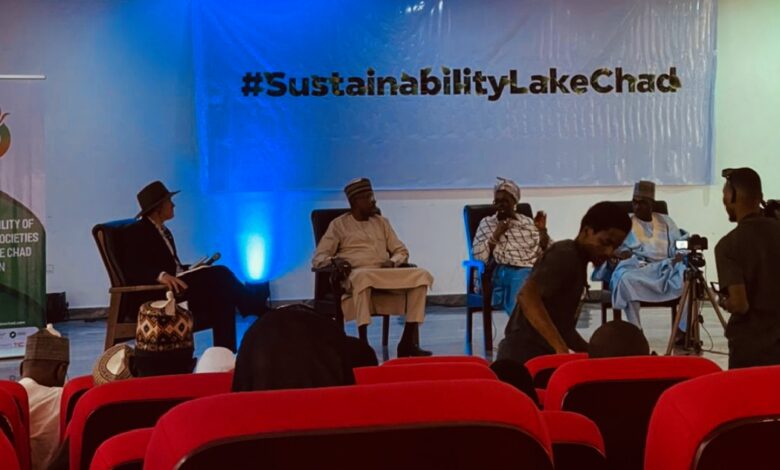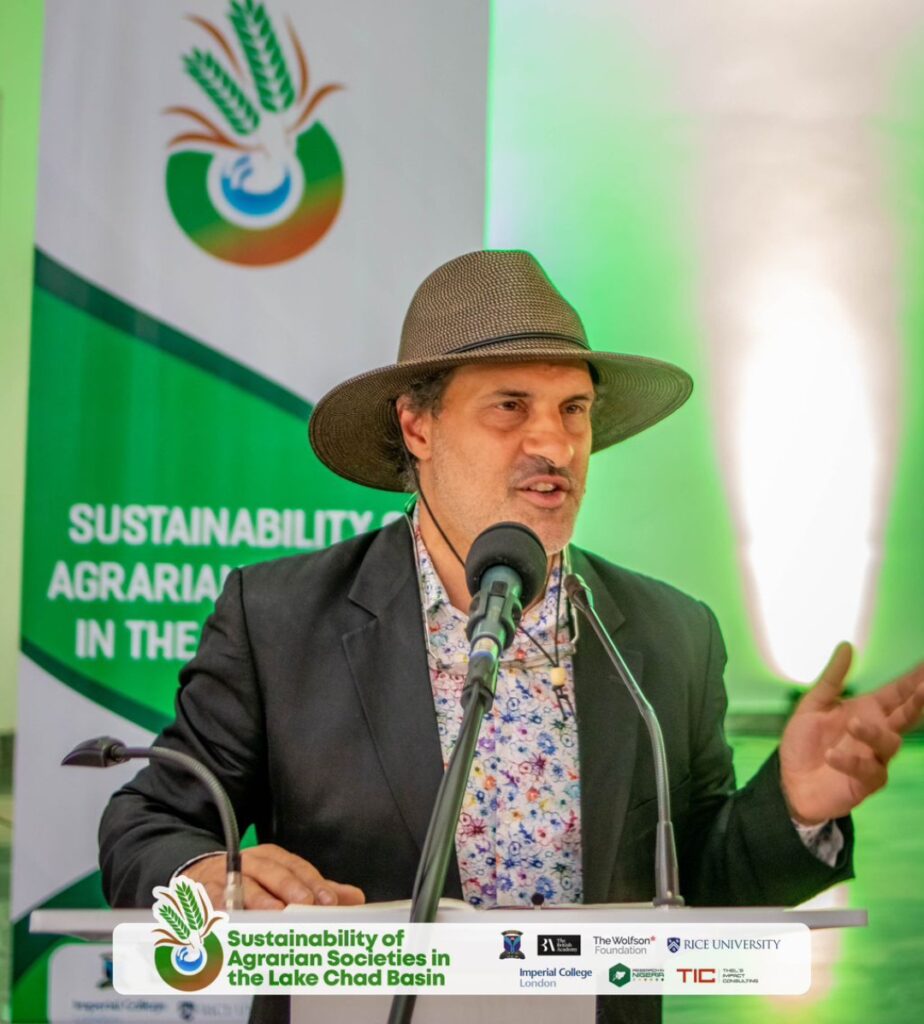Experts, Stakeholders Gather At UNIMAID To Address Lake Chad’s Agrarian Challenges
The University of Maiduguri hosted the symposium with support from foreign partners, focusing on climate change, resource management, and food insecurity in the Lake Chad Basin.

The University of Maiduguri, in collaboration with the British Academy/Wolfson Fellowships and Rice University, hosted the inaugural International Symposium on the Sustainability of Agrarian Societies in the Lake Chad Basin as part of concerted efforts to promote agrarian sustainability in the region.
The event, which took place between May 7 and 8 in Maiduguri, Borno state, addressed the pressing issues of climate change, resource management, and food insecurity. The maiden two-day symposium brought together a diverse group of stakeholders to discuss the topics.
“We aim to understand how climate change, weather patterns, population growth, and economic insecurity affect the lives of farmers, pastoralists, and fishermen,” explained the convener, Professor Frederi Viens, who teaches at Rice University in Texas.
“We invited 30 stakeholders from local villages to share their perspectives. For the two days, we’ll engage in detailed discussions with these community leaders to better understand their challenges and needs.”
In his opening remarks, Professor Aliyu Shugaba, Vice-Chancellor of the University of Maiduguri, called for a united effort to tackle the region’s agricultural challenges.
“The government must provide funds, academia must apply knowledge, and the private sector must offer support. This tripartite arrangement is essential for overcoming the obstacles to crop production around Lake Chad. Any country that doesn’t prioritise agriculture will face problems, regardless of other income sources.”

“We have come here to discuss a critical issue,” said Professor Udo Herbert of Michael Okpara University.
“My interest lies in animal agriculture, and many in this region are pastoralists. Nigeria struggles to feed its population of over 200 million, and understanding the dynamics of the Lake Chad Basin is crucial. This environment is fraught with security concerns, climate change, and the receding lake. These are the issues we’re tackling at this symposium.”
The symposium featured interactive sessions where farmers, fishers, marketers, and educators discussed sustainable practices, market access, and educational initiatives.
“We in the farmers’ group explored climate-smart agriculture, soil conservation techniques, and crop diversification,” said one participant.
“We shared practical knowledge to increase resilience and productivity amidst climate variability.”
A highlight of the event was a panel session moderated by Professor Frederi Viens of Rice University. The panel featured various experts, including Dr Mairo Mandara from the University of Maiduguri, Professor Professor Udo Herbert, Professor Baba Gana Kabir from the Lake Chad Research Institute, and Associate Professor Muinat Bello. The panel delved into the complexities of the agrarian ecosystem in the Lake Chad Basin and discussed sustainable paths towards food security.
Local actors, including smallholder farmers and large-scale agricultural practitioners, also had the opportunity to voice their views.
“It was a valuable platform for us to share our experiences and learn from experts,” said one farmer.
As the symposium concluded, participants expressed hope and determination.
“We’ve gained new insights and connections that will help us drive positive change in our communities,” one attendee said.
“Th3 workshop gives us the opportunity to understand the power of collective action and knowledge sharing in addressing the challenges facing agrarian societies in the Lake Chad region. It was a valuable platform to share our experiences and learn from experts.”Lake Chad’s receding waters have significantly threatened the region’s overall agricultural ecosystem. This situation has been exacerbated by over 15 years of armed conflict, which has caused destruction and losses amounting to over $6.9 billion in the affected areas.
Support Our Journalism
There are millions of ordinary people affected by conflict in Africa whose stories are missing in the mainstream media. HumAngle is determined to tell those challenging and under-reported stories, hoping that the people impacted by these conflicts will find the safety and security they deserve.
To ensure that we continue to provide public service coverage, we have a small favour to ask you. We want you to be part of our journalistic endeavour by contributing a token to us.
Your donation will further promote a robust, free, and independent media.
Donate HereStay Closer To The Stories That Matter




